“[W]e must also remember the Self, this living force with us, wants to help us face our wounds and darkest moments and then—through hurt, fear, sorrow, anger, and tears—emerge and become healed and whole.
“As we look further into how we can call on this part of ourselves for help, we will discover, as Jung did, that strong forces exist within us. Ultimately, the strongest one, the Self, is at the center of our soul. The seat of our inborn urge to heal and grow, the Self enables our personality, our life, and our story to become complete if we give our inner life, the attentive, loving, supportive environment that it needs.” Massimilla Harris, Ph.D. and Bud Harris, Ph.D. Into the Heart of the Feminine: Facing the Death Mother Archetype to Reclaim Love, Strength, and Vitality, 2014, p. 31.
From my perspective, Jung’s concept of the Self is possibly his single most valuable contribution. If enough of us were to experience the reality of it within ourselves, it would have the potential to change us, our civilization, and the world forever. Think of all the religious wars and hate crimes committed in the name of God, or Allah, or whatever name we use for the sacred that could have been prevented if we knew and trusted the Self.
I see the Self is a portal to the Sacred Other. Here are some of Jung’s quotes that have led me to that conclusion:
“The self is a fact of nature and always appears as such in immediate experiences, in dreams and visions, and so on; it is the spirit in the stone the great secret which has to be worked out, to be extracted from nature, because it is buried in nature herself. It is also most dangerous, just as dangerous as archetypal invasions because it contains all the archetypes: one could say an archetypal experience was the experience of the self: It is like a personification of nature and of anything that can be experienced in nature, including what we call God.” CG Jung. Nietzsche’s Zarathustra: CG Jung, Note of the Seminar Given in 1934-1939, Vol.II (3) June 1936), p. 977.
When Jung spoke about archetypal experiences, he meant deeply meaningful spiritual, awe-inspiring experiences that fill you with a sense of having been touched by something supernatural, something divine. Sometimes they manifest in synchronicities—meaningful coincidences—so compelling that they feel like guidance from beyond yourself. They often initiate major life changes you might never have made without a powerful nudge from within.
“[T]he symbol for the Self is an idea of a totality that is not identical with the ego. It is a consciousness which is not exactly our consciousness, a light which is not exactly our light.” CG Jung, Visions: Notes of the Seminar Given in 1930-1934, Vol.I (11 Nov. 1931), p. 445.
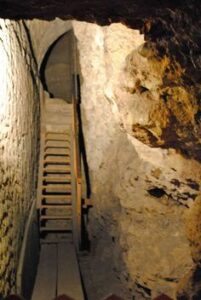
Your ego cannot manufacture an archetypal experience. But it can open up, accept, and follow the guidance it receives from nature through the portal of the Self.
“Through the self we are plunged into the torrent of cosmic events. Everything essential happens in the self and the ego functions as a receiver, spectator and transmitter.” CG Jung , Letter to Aneila Jaffe, 22 Dec. 1942, Letters, Vol. 1, p. 326.
“[E]very light, every fire, comes to an end, and there would be utter darkness, but there is still left the light of the self, which is the supreme light.” CG Jung, Nietzsche’s Zarathustra: Notes of the Seminar Given in 1934-1939, Vol. 11 (29 Jan. 1936) p. 792.
Note what Jung says about the difference between God and the Self: your God-image and portal to God:
“[T]he term self is often mixed up with the idea of God. I would not do that. I would say that the term self should be reserved for that sphere which is within the reach of human experience, and we should be very careful not to use the word God too often. As we use it, it borders on impertinence; it is unlawful to use such a concept too often. The experience of the self is so marvelous and so complete that one is of course tempted to use the conception of God to express it. I think it is better not to, because the self has the peculiar quality of being specific yet universal. It is a restricted universality or a universal restrictedness, a paradox; so it is a relatively universal being and therefore doesn’t deserve to be called “God.” You could think of it as an intermediary [a portal? my word], or a hierarchy of ever-widening-out figures of the self till one arrives at the conception of a deity. So we should reserve that term God for a remote deity that is supposed to be the absolute unity of all singularities. The self would be the “preceding stage” [quotes mine] a being that is more than man and that definitely manifests; that is the thinker of our thoughts, the doer of our deeds, maker of our lives, yet it is still within the reach of human experience.” CG Jung, Nietzsche’s Zarathustra: Note of the Seminar Given in 1924-1939, Vol. II (3 June 1936) par. 977-78.
Finally,
“There is no reason whatsoever why we should or should not call the beyond-self Christ or Buddha or Purusha or Tao or Khidr or Tifereth. All these terms are recognizable formulations of what I call the “self.” Jung and Religious Belief, 1958), CW 18, par. 1672.
Have you ever had an experience of the Self? How did it change your view of yourself and the way you see and live your life?
Image credits: Adobe, Pinterest
Jean Raffa’s The Bridge to Wholeness and Dream Theatres of the Soul are at Amazon. Healing the Sacred Divide can be found at Amazon and Larson Publications, Inc. Jean’s new Nautilus Award-winning The Soul’s Twins, is at Amazon and Schiffer’s Red Feather Mind, Body, Spirit. Subscribe to her newsletter at www.jeanbenedictraffa.com.

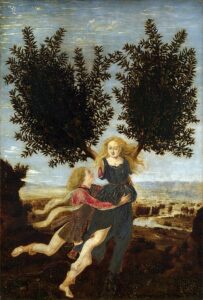
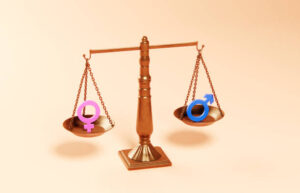

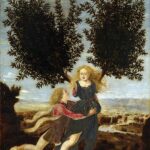
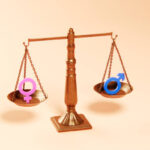
15 Responses
Dear Jeanie,
Thank you for sharing this post about the Self. I enjoyed all the quotes you’ve shared, especially Jung’s poetic, “Every light, every fire, comes to an end, and there would be utter darkness, but there is still left the light of the self, which is the supreme light” … which took me straight back to a series of dreams I once had … where I enter a room where I would busy myself looking at everything inside it, people, objects, clothes and books, etc., until I become aware of a presence there, who wasn’t just ‘in’ the room, but ‘was’ the room and everything within it, and without it.
This series of dreams convinced me of the reality of the Self and then another encounter came, only this time I was conscious and sitting on my settee … where out of nowhere I began to see faces of people I knew. First came family faces, one by one, then friends, then old neighbours. I was startled and wondered what on earth was happening … it just didn’t make sense … then suddenly I felt the presence of ‘something’ in the room and just knew it to be the Self. A mesmerising brief encounter! It didn’t speak to me or do anything other than make its presence known.
Yes, these experiences have changed me as I no longer believe my ego is in control and perhaps the people who populate/d my life and the things I found / find in ‘rooms’ are everything I need for my soul’s biggest adventure, this life. Hmm, perhaps I need to try and find a way to write about all these experiences. I’ll fail miserably I know … but one thing I’ve learnt for sure, is that the archetypal Self, the God/dess, wants to be known, perhaps even yearns to be known by us. More food for thought! So thank you very much for asking your last question my dear friend.
Love and light, Deborah
Dear Deborah,
Thank you for sharing your series of dreams. It’s fascinating. The theme of closely examining everything inside the “room” makes me think of examining and exploring my unconscious self, searching for self-knowledge. And then comes the payoff for all my hard work: the archetypal experience that enters the space of my consciousness while my ego simply sees and gratefully receives its presence. This fits beautifully with Jung’s descriptions of the Self.
I totally agree with your conclusion that the archetypal Self wants to be known by us. In my experience, it usually waits for some kind of invitation from the ego—like taking on a regular spiritual practice, or being brought to our knees by suffering and offering a humble and deeply sincere prayer for help—before it makes itself known. But it can also occur in a way that makes a deep impression on a child who is unusually sensitive.
The way your experiences changed you, i.e. by letting your ego know it is not in control, is, I think, the whole point. Once we know and accept that reality we’re ready for the adventure of our lives. I do hope you will write about these experiences. The more people who establish a relationship with the Self and allow it to occupy its rightful place at the center of the psyche, the more hope we have for the future.
Love and light, Jeanie
I had been studying Jung for many years and never felt that I understood exactly what he meant by the Self. He was understandably cautious about defining his terms too tightly. This is a lovely compilation. I especially like the last quote. I got more of a handle on the term Self when I began to study Vedanta. What they call the Self is Brahman (ultimate reality) together with the power of maya (creative imagination?). This is the creator God of dualistic systems. It is also called the Atman and is equivalent to Christ.
I had a very powerful experience of the Self. I called it a dream initially because I was in bed at night, but it was no ordinary dream. I was a vortex of energy and I was approaching the source (I have no idea how I knew that). As I got close to the source, an identical vortex of energy materialised in front of me. We were both vibrating at the same intensity and it was an exhilarating, joyful feeling. I knew it was the Christ. As we came close, we turned so that we were side by side and looking out over a vast, inky darkness with vignettes of life scenes and he (definitely a masculine energy) was indicating to me that I should choose which life to enter into. This occurred in 2007 and it wasn’t until I went into analysis 11 years later that I could even begin to comprehend it and assimilate the effect it had on me. Your idea of the Self as a portal has broadened my perspective on the experience. Thank you. Jean.
Dear Gloria,
Thank you for sharing your numinous archetypal experience. I’m glad to know this post addressed it in a way that’s meaningful to you. I find the theme of approaching the source, the Other, and developing a relationship with it especially fascinating. For me, the fact that the Other energy is masculine where yours is, I assume, feminine, speaks to the heiros gamos, or sacred marriage of alchemy. Likewise, the fact that you and the other vortex are both vibrating at the same intensity ultimately speaks to the importance of establishing conscious, egalitarian, reciprocal partnerships between all pairs of opposites.
Finally, in my way of thinking, being offered the chance to choose which life to enter into feels like a spiritual calling to a destiny for which you are particularly well-suited. I’m wondering if you’ve found what feels like your destiny on your journey yet. Whether you have or not, I can certainly see why this dream would make such a powerful and lasting impact on you.
The themes introduced in your experience are the central themes of my own life and work. If you’re interested in expanding your perspective on them, may I suggest a 20 minute video presentation I recently made to a conference on mythology? You can find it on my YouTube site at this link: https://www.youtube.com/c/JeanRaffa Look for the one titled “Mythologium 2023: Remyth Your Story: Integrate Your Feminine and Masculine Archetypes with Heart.”
With love and blessings, Jeanie
Thank you Jean. Yes I have now found what feels like my destiny. It has taken quite a few years. I loved the Mythologium video. What an extraordinary dream to have as a 10 year old and what a journey you have taken. You are truly an inspiration.
Yes, it’s been quite a journey. As you saw in the video, it took me a long time to find my destiny too. Painful as it was, I’ll always be grateful for that dream. As I eventually realized, it provided the motivation for my search for my life’s meaning. Thank you for your kind comments.
Dear Jeane. Sometimes, I just wished we would have never had any Gods or Allah or whatsoever before this man could tell us of his mind. He speaks of something we have lost for so many years ago and wasted such worthy lives praying in front of walls, statues, and pictures. Of course, there are some similarities in the Mysticism in the time of Rumi and Shams Tabrez about this inner Self. As Rumi says: “Oh, wandering One, if you are in search of the greatest treasure, don’t look outside. Look within, and seek That.”
However, I regret what I see on FB, especially in the Jungian groups, as many confuse Jesus with the Self. Though, Jung had never said Jesus but only Christ. Anyway, thank you wholeheartedly for explaining this important subject with such great, treasured quotes.
PS: I also have a thought in my head, now and then, if this Self comes from outer space!! 😉😂💖
Dear Aladin,
Thank you for sharing your variety of thoughts on this topic. Yes, Jung’s conception of the Self speaks to the mystical aspects of spirituality, i.e. the personal archetypal experiences that impact us profoundly as opposed to the well-intended but often ineffective moral precepts and rules handed down to us by the heavenly male God of organized religions.
I’m thinking especially about patriarchal religions that demonize, discriminate against, and try to dominate people who are different, or non-believers. . . or female! I adore Rumi’s poetry because it addresses the self/Self-affirming mystical aspects of spirituality so beautifully. Thank you for sharing this particularly relevant and succinct line.
To my mind, Jung’s perspective carries us a step forward in the evolutionary trajectory of our thinking about the Sacredness of life. I believe it ameliorates the negative aspects of organized religion that are still very much with us. May it be so.
With love and blessings, my friend, Jeanie
Amen, my dear teacher. Interestingly, the young revolutionaries in Iran have a new name for “almighty”: the God of the rainbow! Be blessed. 💖
I love that! It takes all the colors of nature and a bridge between heaven and earth to create justice, unity and peace. Blessings.:-)
Hi Jeanie,
My comment on this blog never got posted. I assume I blew it somehow, but if not, please let me know. Otherwise I’ll write a new comment.
Love, Elaine
Hi Elaine. So sorry. I don’t know what’s happening to your comments. I wrote on on your blog a week or so ago and i don’t think it went through either. I’ll check.
I’ve the same problem with comments here.
I have this problem with a few other sites too. I wish someone could tell us what we’re doing wrong! Anyone know?
For those of you who are having trouble leaving comments on my blog posts, try unsubscribing, waiting a minute, then re-subscribing. That worked for another follower.